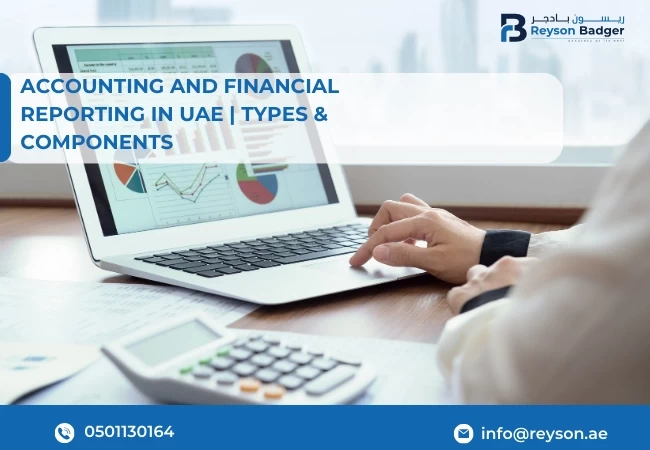

Accounting and financial reporting in UAE are key parts of managing a company's money. In the United Arab Emirates (UAE), these areas help keep things clear and proper. The UAE's fast-growing economy means businesses need to keep accurate and trustworthy records. In this post, we'll look at why accounting and financial reporting are so important in the UAE. We’ll cover the main types of financial reports and the rules that guide reporting in the country.
The United Arab Emirates (UAE) has a well-established regulatory framework for accounting and financial reporting, which is designed to promote transparency, accountability, and investor confidence. The regulatory framework is overseen by two key authorities: the UAE Ministry of Finance and the Securities and Commodities Authority (SCA). The Ministry of Finance is responsible for setting accounting and auditing standards, as well as regulating the accounting profession. The SCA, on the other hand, is responsible for regulating the securities market and overseeing the financial reporting of listed companies. Together, these authorities ensure that companies in the UAE comply with international accounting standards, including International Financial Reporting Standards (IFRS), and maintain high standards of financial reporting and disclosure.
In the UAE, businesses are required to prepare several types of financial reports to ensure compliance with local regulations and international standards. These reports provide essential insights into a company's financial health and performance. The primary types of financial reports include:
The balance sheet, also known as the statement of financial position, provides a snapshot of a company's assets, liabilities, and equity at a specific point in time. It helps stakeholders assess the company’s financial stability and liquidity by showing what the company owns and owes.
The income statement, or profit and loss statement, summarizes a company's revenues, expenses, and profits or losses over a specific period. This report is crucial for evaluating the company’s operational performance, highlighting profitability trends, and informing stakeholders about financial results.
The cash flow statement details the inflows and outflows of cash within a business during a specific period. It categorizes cash flows into operating, investing, and financing activities, providing insights into the company’s liquidity and ability to meet its short-term obligations.
The notes accompanying financial statements provide additional context and detail regarding accounting policies, significant transactions, and other relevant information that enhances the understanding of the financial reports. They are essential for compliance with International Financial Reporting Standards (IFRS) and local regulations.
Financial reports in the UAE consist of several key components that enhance their effectiveness and compliance with regulatory requirements:
This section outlines the specific accounting methods and principles adopted by the company in preparing its financial statements. It includes details on revenue recognition, inventory valuation, depreciation methods, and other relevant accounting practices.
These notes provide detailed explanations of various line items in the financial statements. They may include information about contingent liabilities, related party transactions, segment reporting, and any significant accounting estimates or judgments made during preparation.
The MD&A section offers management's perspective on the company's financial performance and future outlook. It typically includes discussions on operational results, market conditions, risks faced by the business, and strategic initiatives undertaken to enhance performance.
An independent auditor's report provides an opinion on whether the financial statements present a true and fair view of the company's financial position by applicable accounting standards (e.g., IFRS). This report is crucial for establishing credibility with stakeholders.
The United Arab Emirates (UAE) has adopted International Financial Reporting Standards (IFRS) as the basis for financial reporting. IFRS provides a framework for consistent and transparent financial reporting, enabling investors and other stakeholders to make informed decisions. The UAE's adoption of IFRS reflects its commitment to promoting transparency and accountability in financial reporting and aligning its accounting standards with international best practices.
In addition to IFRS, the UAE has its own Generally Accepted Accounting Principles (GAAP), which provide guidance on accounting and financial reporting for entities that are not required to apply IFRS. UAE GAAP is based on IFRS but includes additional requirements and guidance that are specific to the UAE's business environment. UAE GAAP applies to small and medium-sized enterprises (SMEs), as well as other entities that are not required to apply IFRS.
Accounting and financial reporting matter a lot in the UAE. They help businesses stay on track and keep everyone informed. Reyson Badger, who knows a lot about this, says that clear financial reports help companies make smart choices. They also help draw in investors and keep the trust of those involved.
The UAE is serious about following global accounting rules like IFRS. This push for openness and responsibility in financial reports shows just how crucial accounting is in the business scene here. When UAE businesses focus on clear and accurate reporting, they can grow, gain trust, and do well over time.